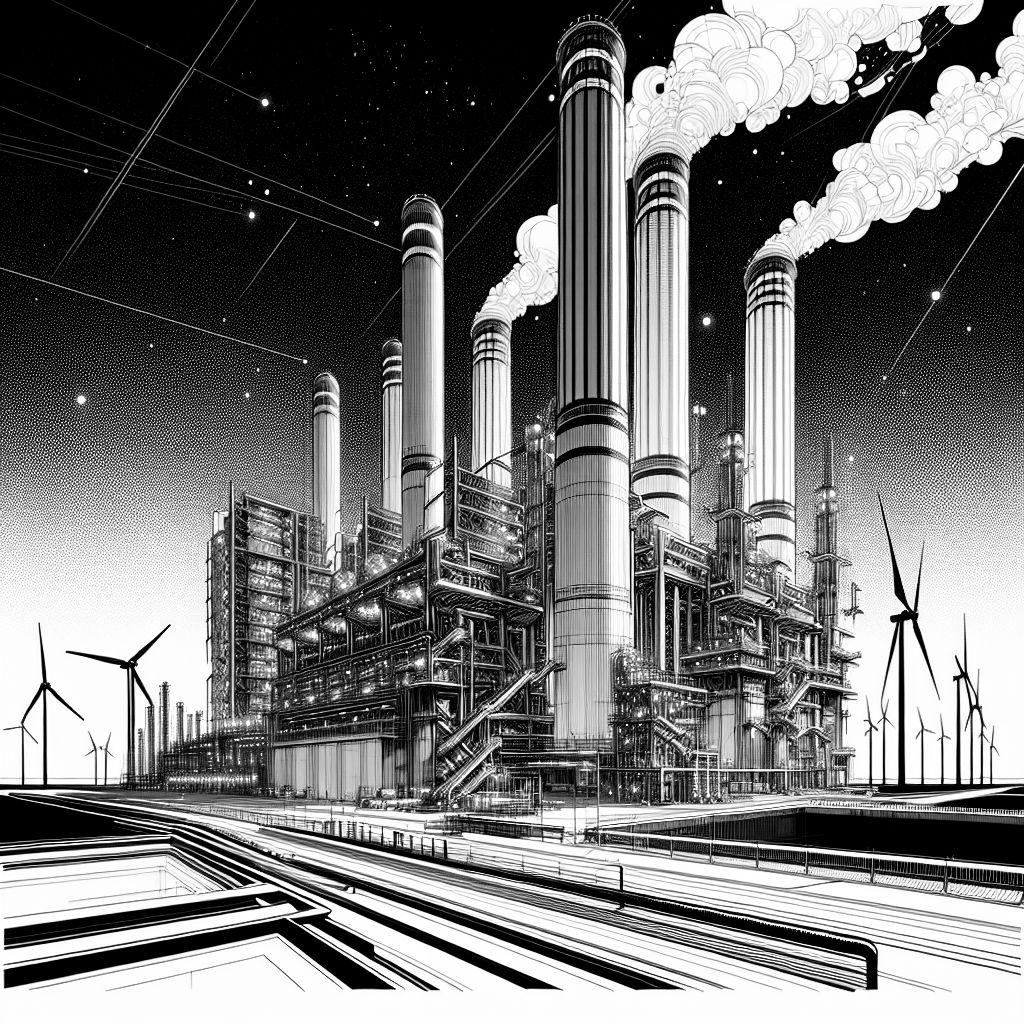BERLIN / LONDON (IT BOLTWISE) – The transition to green energy requires not only innovative technologies, but also significant investments in infrastructure. Germany is planning to build new gas power plants that will run on hydrogen in the future. But the technical and economic challenges are considerable.
Today’s daily deals at Amazon! ˗ˋˏ$ˎˊ˗
The energy transition in Germany is approaching a crucial phase in which the integration of green hydrogen into the energy supply plays a central role. Federal Economics Minister Katharina Reiche and her predecessor Robert Habeck have agreed that new gas power plants are necessary to ensure security of supply, especially during the so-called dark lulls, when neither wind nor sun provide sufficient energy.
The challenge is to design these power plants to run on hydrogen right from the start. However, both technology and experience with large-scale hydrogen-capable power plants are currently limited. Experts such as Friedrich Dinkelacker from Gottfried Wilhelm Leibniz University Hannover point out that running a large power plant on hydrogen could use up a country’s entire production capacity, making such experiments expensive and complex to carry out.
Some companies, including Siemens and Mitsubishi Power, already offer so-called H2-ready systems that work with a mixture of natural gas and hydrogen. However, these technologies are not yet able to significantly reduce CO2 emissions because the hydrogen content in the mixture is often not high enough. Nicolas Noiray from the Swiss Federal Institute of Technology in Zurich explains that a volume share of over 90 percent hydrogen would be necessary to reduce emissions by 70 percent or more.
The switch to hydrogen is not only technically demanding, but also economically challenging. The price of green hydrogen is currently significantly higher than that of natural gas, driving up operating costs. Christian Matthes from the Oeko-Institut emphasizes that converting existing gas power plants to run on hydrogen would be more cost-effective, but would still require significant investments. Alternatively, gas engine power plants could provide a more efficient and flexible solution as they can be ramped up more quickly and do not require specialized workers to operate.
Another approach, proposed by Michael Sterner from the East Bavarian Technical University of Regensburg, is the conversion of hydrogen into methane through power-to-gas technologies. This methane could then be used in existing infrastructure without the need for expensive conversions. This solution could provide a bridge to the full integration of hydrogen into the energy supply while gradually addressing the technical and economic challenges.
*Order an Amazon credit card with no annual fee with a credit limit of 2,000 euros! a‿z
Bestseller No. 1 ᵃ⤻ᶻ “KI Gadgets”
Bestseller No. 2 ᵃ⤻ᶻ “KI Gadgets”
Bestseller No. 3 ᵃ⤻ᶻ “KI Gadgets”
Bestseller No. 4 ᵃ⤻ᶻ «KI Gadgets»
Bestseller No. 5 ᵃ⤻ᶻ “KI Gadgets”


Please send any additions and information to the editorial team by email to de-info[at]it-boltwise.de. Since we cannot rule out AI hallucinations, which rarely occur with AI-generated news and content, we ask you to contact us via email and inform us in the event of false statements or misinformation. Please don’t forget to include the article headline in the email: “Challenges and opportunities of H2-ready gas power plants”.
The post Challenges and opportunities of H2-ready gas power plants appeared first on Veritas News.
